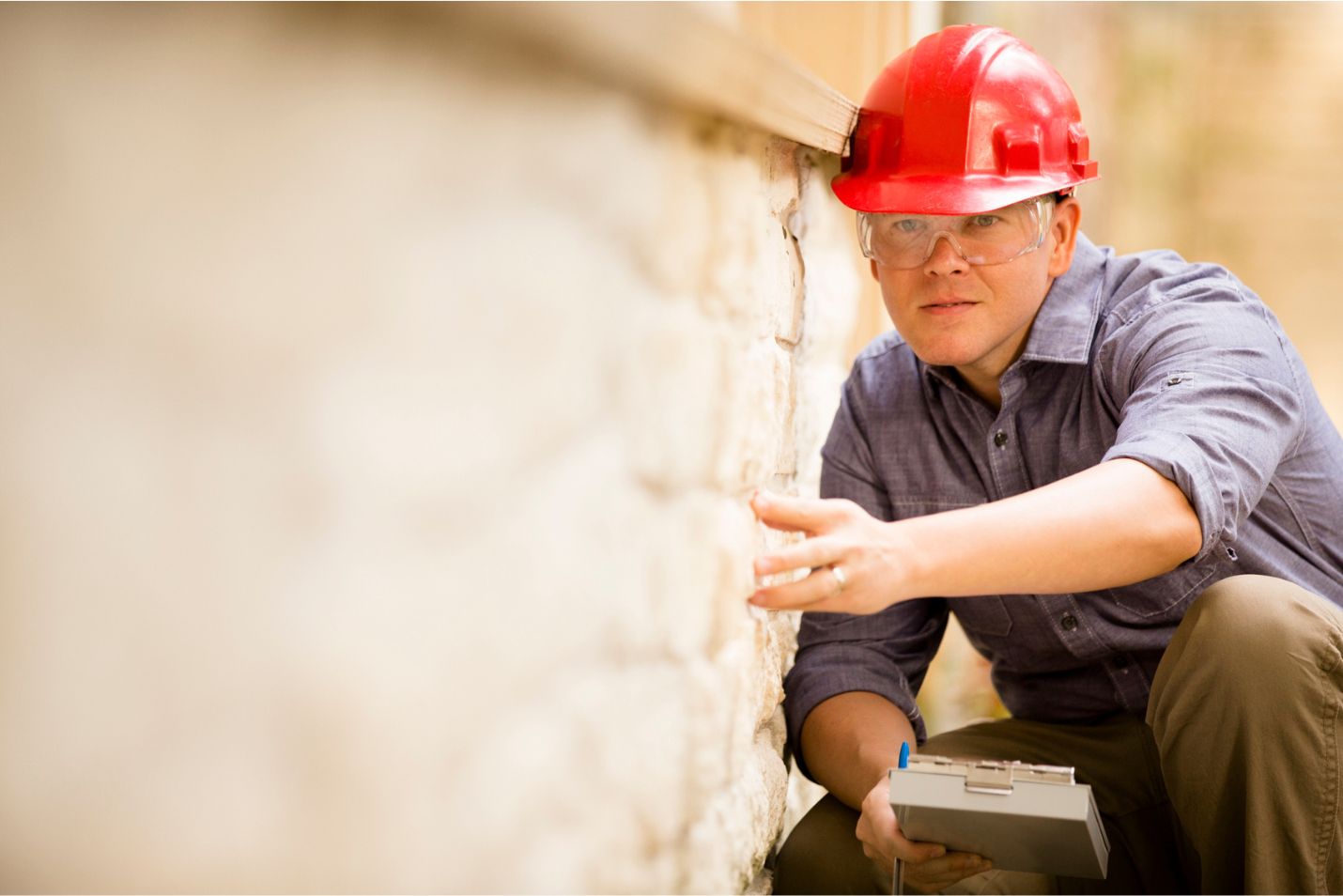As an aspiring home inspector, you are entering a profession that plays a critical role in the home-buying process. To ensure the safety and satisfaction of future homeowners, you must be well-versed in the most common home inspection problems. This article will provide you with valuable insights into some common issues discovered during home inspections, along with tips on how to identify and address them effectively.
Want to get licensed as a Florida home inspector? Check out Gold Coast School of Construction’s trusted Florida home inspector courses!
Most Common Home Inspection Problems to Look For
1. Structural Issues
Your primary responsibility as a home inspector is to assess the structural integrity of a property. Be prepared to encounter foundation cracks, uneven settling, and damaged or missing support beams. These problems can lead to costly repairs and safety concerns if not addressed. Familiarize yourself with signs of structural issues such as sloping floors, cracks in walls or ceilings, and doors or windows that don’t open or close properly.
2. Roof Problems
Roof issues are frequently discovered during home inspections. Damaged or missing shingles, inadequate flashing, and signs of water damage or leaks are all indicators of potential problems. As a future home inspector, it is crucial to develop a keen eye for these signs and understand how to maintain and repair roofing systems.
3. Plumbing Issues
From leaky pipes and outdated materials to inadequate water pressure, plumbing issues can lead to water damage, mold growth, and other potentially serious problems. Learn to recognize visible leaks, signs of water damage, and the functionality of fixtures and appliances. Familiarize yourself with different types of plumbing materials and systems and their respective maintenance needs.
4. Electrical System Concerns
Electrical system issues can pose serious safety risks, such as fires and electrocution. As an aspiring home inspector, it is essential to understand the complexities of electrical systems, including electrical panels, grounding techniques, and wiring materials. Learn to identify outdated, overloaded, or improperly installed systems and recommend that a licensed electrician address any concerns.
5. Heating, Ventilation, and Air Conditioning (HVAC) Systems
A thorough understanding of HVAC systems is crucial for any home inspector. Familiarize yourself with the various types of systems, their components, and their maintenance needs. Learn to evaluate the age and condition of HVAC systems, ensuring they are functioning efficiently and safely. Develop a routine for checking air filters, ductwork, and other essential components during your inspections.
6. Poor Drainage and Grading
Drainage and grading issues can result in water intrusion, foundation problems, and landscaping damage. As a future home inspector, you should be able to identify signs of standing water, water intrusion in basements or crawlspaces, and improper grading around the foundation. Understanding the principles of proper drainage and grading will help you protect homeowners from costly repairs.
As an aspiring home inspector, it is crucial to be well-prepared for the challenges you will face in the field. By familiarizing yourself with the most common home inspection problems, you will be better equipped to provide accurate assessments and valuable insights to potential home buyers. Remember, your role is essential in ensuring the safety and satisfaction of homeowners, and your expertise will make a significant impact on their lives.
Interested in becoming a licensed Florida home inspector? Gold Coast School of Construction offers an approved 120-Hour Home Inspection Pre-Licensing Course with flexible learning options.
Written by Chris Clausing. Chris Clausing is the Program Director for Gold Coast School of Construction and Curriculum and Program Innovation for Colibri Group’s Construction Education Ecosystem. Chris is a Certified General Contractor (CGC1515171) in the State of Florida with over 20 years of experience in the Construction and Inspection industries. Chris also sits as a Consensus Committee Member for the IECC helping shape the energy codes of the future as well as a LEED GA. If you have any questions, please reach out to Chris directly at Contractor@GoldCoastSchools.com.

